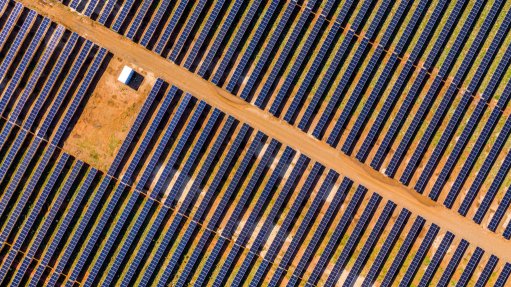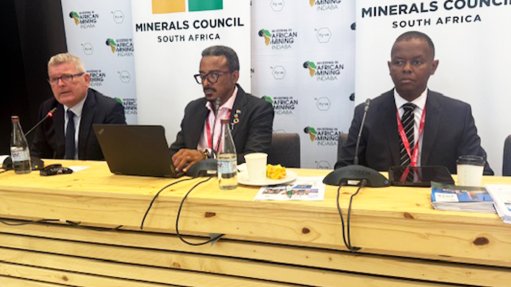Unlamented late ex-Prez
Former Angolan head of State Jose Eduardo dos Santos died earlier this month and, like several African ex-Presidents before him, he breathed his last faraway from home – at a Spanish hospital where he had been receiving treatment for an undisclosed ailment.
A second-generation Angolan whose parents were immigrants from São Tomé, Dos Santos was at the helm of the south-western African country for nearly four decades, during which time he won a brutal post-independence civil war and presided over an oil-fuelled economic boom.
The oil bonanza, however, did very little to alleviate poverty, the incidence of which is 32% nationally, 18% in urban areas and a staggering 54% in the countryside, according to the World Bank. This is despite Angola having been one of Africa’s top oil producers during much of his tenure, which stretched from 1979 to 2017. The country is now the continent’s biggest producer, having overtaken Nigeria in May this year, when its output hit 1.16-million barrels a day.
His highest priority when it came to the distribution of the petrodollars that flowed into the national kitty appeared to have been his immediate family – and his own pocket, of course. His daughter Isabel was once Africa’s richest woman and youngest billionaire, with a net worth of $3.5-billion, generated from investments in the banking, cement, diamonds and telecoms sectors. She also became chairperson of State-owned oil company Sonangol, while her half-brother, Filomeno, headed a $5-billion sovereign wealth fund – courtesy of their father.
Like many of his peers across the continent, it did not occur to Dos Santos to invest more of his nation’s wealth in healthcare, despite being aware of this sector’s parlous state. It was this awareness that prompted African heads of State to sign the Abuja Declaration in 2001, pledging to allocate at least 15% of their Budgets to healthcare. But performance in this regard has been dismal, with a report published by consulting firm McKinsey & Company in 2020 finding that fewer than five countries had reached this target. Average per capita healthcare expenditure on the continent remains very low, ranging from $8 to $126 a year, compared with more than $4 000 in high-income countries.
The upshot of underinvestment in African healthcare includes an insufficient number of healthcare facilities that are poorly equipped and often lack adequate stocks of medicines and other critical consumables, as well as a brain drain that has led to unacceptably high doctor-patient ratios.
This, of course, didn’t bother Dos Santos and his ilk, as they could afford to hop on a plane and make a beeline for an overseas hospital at the slightest hint of illness.
Dos Santos was not the only former or serving African President to have died in a foreign land. There have been many. Two of Zambia’s post-independence leaders, Michael Sata and Levy Mwanawasa, died while being treated abroad, as did Zimbabwe’s Robert Mugabe, Ethiopia’s Meles Zenawi and Guinea Bissau’s Malam Bacai Sanhá. I’ve also read about Nigerian President Muhammadu Buhari’s lengthy absences – sometimes for months on end – in order to receive medical attention at elite medical facilities in the UK.
Two other top politicians – Burundi’s Pierre Nkurunziza and Tanzania’s John Magufuli – were not so lucky. They took ill in 2020 and 2021 respectively. That’s when air travel had virtually ground to a halt as the world battled to curb the spread of the coronavirus. Both could go only as far as Kenya, but the hospitals there could not save their lives.
Some obituary writers have praised Dos Santos as a liberation hero who went on to crush a vicious insurrection after he had become President and left office without a fuss.
Unfortunately, his corruption, nepotism and neglect of the public healthcare sector make him a villain.
Article Enquiry
Email Article
Save Article
Feedback
To advertise email advertising@creamermedia.co.za or click here
Comments
Press Office
Announcements
What's On
Subscribe to improve your user experience...
Option 1 (equivalent of R125 a month):
Receive a weekly copy of Creamer Media's Engineering News & Mining Weekly magazine
(print copy for those in South Africa and e-magazine for those outside of South Africa)
Receive daily email newsletters
Access to full search results
Access archive of magazine back copies
Access to Projects in Progress
Access to ONE Research Report of your choice in PDF format
Option 2 (equivalent of R375 a month):
All benefits from Option 1
PLUS
Access to Creamer Media's Research Channel Africa for ALL Research Reports, in PDF format, on various industrial and mining sectors
including Electricity; Water; Energy Transition; Hydrogen; Roads, Rail and Ports; Coal; Gold; Platinum; Battery Metals; etc.
Already a subscriber?
Forgotten your password?
Receive weekly copy of Creamer Media's Engineering News & Mining Weekly magazine (print copy for those in South Africa and e-magazine for those outside of South Africa)
➕
Recieve daily email newsletters
➕
Access to full search results
➕
Access archive of magazine back copies
➕
Access to Projects in Progress
➕
Access to ONE Research Report of your choice in PDF format
RESEARCH CHANNEL AFRICA
R4500 (equivalent of R375 a month)
SUBSCRIBEAll benefits from Option 1
➕
Access to Creamer Media's Research Channel Africa for ALL Research Reports on various industrial and mining sectors, in PDF format, including on:
Electricity
➕
Water
➕
Energy Transition
➕
Hydrogen
➕
Roads, Rail and Ports
➕
Coal
➕
Gold
➕
Platinum
➕
Battery Metals
➕
etc.
Receive all benefits from Option 1 or Option 2 delivered to numerous people at your company
➕
Multiple User names and Passwords for simultaneous log-ins
➕
Intranet integration access to all in your organisation


















